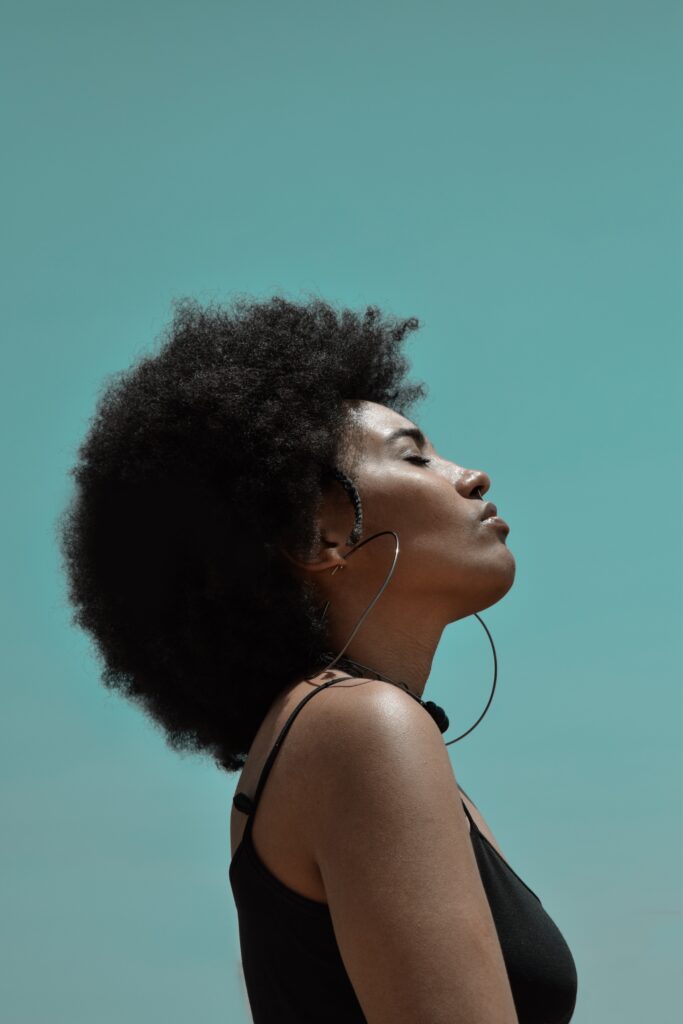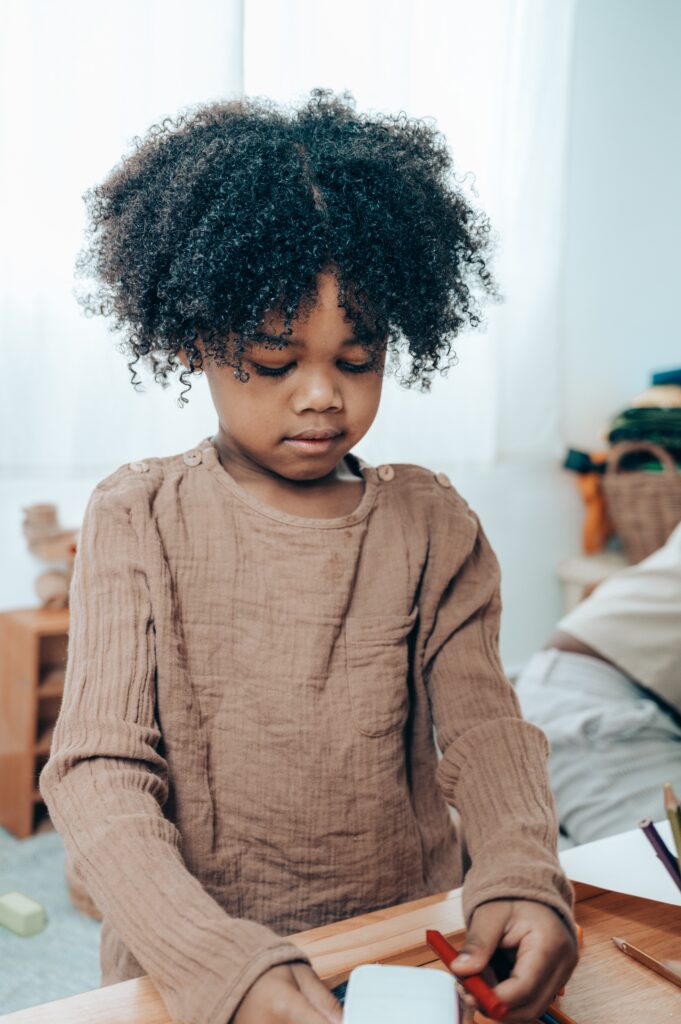By: Sydnee Walcott
Published August 19, 2022

With the news of Rapper Saucy Santana’s old tweets on Blue Ivy Carter’s natural hair resurfacing on social media, a picture of ten-year-old Ivy, with a mature new look was noticed when she was spotted courtside with her father, rapper Jay-Z, watching game five of the NBA finals. This situation sheds light on why young black girls continuously struggle to love and accept their natural hair.
Ever since Blue Ivy, the oldest daughter of singer Beyoncé and rapper Jay-Z, was a baby, people have made comments on her appearance. Her natural hair has been a main topic of discussion.
While some have praised Beyoncé and Jay-Z for allowing their daughter’s hair to flourish without the use of chemical relaxers, there have been a lot of negative comments that have been made about her hair type.
In June of 2014, at the age of two Blue Ivy’s hair became a major topic of discussion when a woman named Jasmine Toliver created a petition on change.org. This petition garnered over 2,500 signatures demanding Beyoncé and Jay-Z to comb their daughter’s hair. Although Toliver stated that she created this petition as a comical joke, it did not stop people from sharing their negative opinions on why they signed it.
Two months later, Karrueche Tran, a guest host on BET’s 106 and Park teased Beyoncé and Jay-Z for never combing their daughter’s hair. This joke was made during a segment on what the toddler’s thoughts were on the 2014 MTV Video Music Awards. While Tran and BET’s Former President of Music Programming and Specials, Stephen Hill, have apologized for being insensitive, the unnamed producer who made the joke was suspended.
When Blue Ivy becomes an adult, she will read these negative comments and posts that have been directed at her hair. This negativity can cause emotional damage that can distort one’s self image and hinder one’s growth and development. This not only applies to Blue Ivy but to other Black girls with a similar hair type who will read these comments.
A lot of Black women will undergo a hair journeywhere theylearn how to accept their natural hair for itsauthentic beauty. Many Black womenwill also have to unlearn criticisms that have been inflicted onto them from people, eventhe ones closest to them such as family or friends.
These situations will result in people questioning why it is so common for Black girls to develop low self-esteem issues due to the stigma around their natural hair. The rise of social media gives people a platform to voice their negative thoughts through comments, videos, and posts about natural hair.
Posts on socialmedia are not the only issue that has led to these self-esteem issues. Bullying, teasing, and insensitive comments that have been made by other children, teachers, adults, and relatives in person have asimilarimpact on self-worth.
In public institutions, there have been news stories of children either being suspended from school, threatened with punishment, or experiencing a suspension on all extracurricular activities for coming to school with their natural hair. These styles include afro or protective styles such as braided extensions or dreadlocks.

To stop discrimination against natural hair, educating young Black girls on ways to embrace their natural hair is a viable solution.
Nowadays, Black kids have access to many different resources such as books, toys, and social media images to help them celebrate, normalize, and accept their natural hair for its beauty.
Over the past couple of years in the United States, a law was established to ban discrimination against natural hair. This has led to positive attitudes towards natural hair from both Black girls and women as they can feel free to abandon flat irons that can damage their hair and allow it to flourish in its natural state.
This law, referred to as The CROWN Act(Creating a Respectful and Open World for Natural Hair), has been implemented in 16 American states so far and was first introduced in California in January of 2019.
There is currently a campaign led by a team of Black women leaders in a supported partnership with a coalition of organizers and individuals to put pressure on the government to pass the act in the remaining 32 states.
In Canada, there have also been incidents of Black girls and women facing hair discrimination at school or at their jobs. While Black girls have experienced chastising at schools, Black women were either sent home from work or have quit their jobs because they were told by their employers their hair did not “fit” their establishment or their hair would “scare” customers away.
So far Canada does not have a legislation on discrimination against natural hair. But steps have been made to push for legislation in the country.
In 2020, a petition which received over 11,000 signatures, was created to have colleges, apprenticeships and on-job training make it mandatory for students to be taught how to care for natural hair.
And in March of this year, MPP Jill Andrews conferred a similar petition, “Protecting Our Crowns,” to the Ontario Legislative Assembly. Unfortunately the petition has yet to make any progress and the provincial parliament had attenuated in May for the 2022 elections.

The Black community has come together and worked hard to create a positive narrative to help encourage girls so that they do not pay attention to the stereotypes that surround them on a daily basis.
Today’s Black children and future generations should not have to endure what children experienced in the past as new laws are being implemented.
Hair plays a critical role in the identity of Black girls and they should be treated equally for the afro hair they confidently choose to present. Every young girl deserves to grow up with confidence that carries over to their adulthood by embracing their hair and all of their unique features.
Sydnee Walcott is a Copy / Contributing Editor for Black Voice. She is also a writer who likes to capture the essence when writing articles on a variety of topics.

